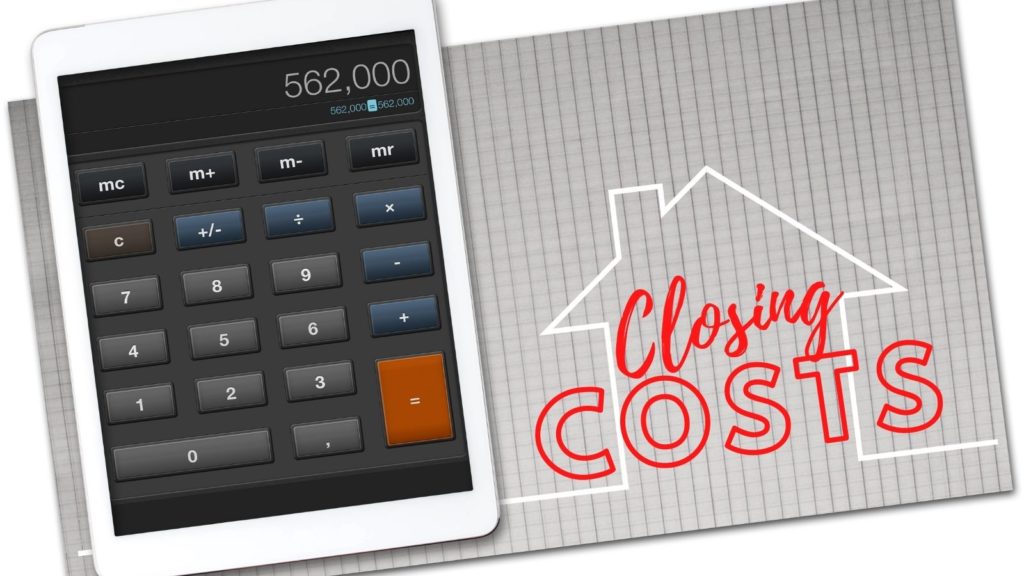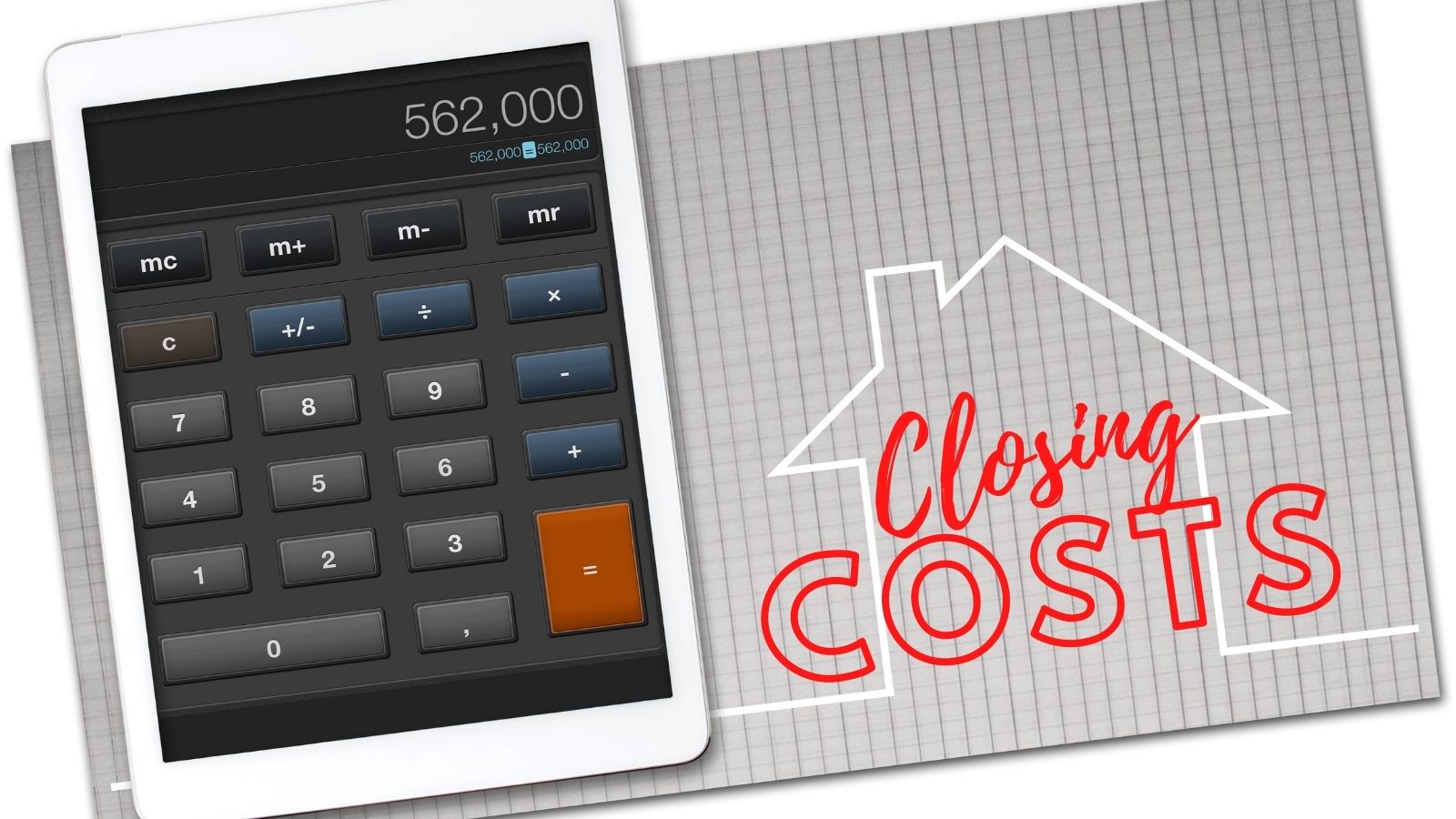Purchasing a home involves coming up with a good amount of money out-of-pocket that’s for more than just for the down payment. Homebuyers must also save up money for closing costs, including fees and charges for third-party services such as title policies, inspections, appraisal fees, homeowner’s insurance, recording fees reserves to set up the escrow, and impound accounts, and more. Though both buyers and sellers pay the closing costs, buyers pay a significant part of these fees.
Often, the total cost comes as a shock to many homebuyers who have only saved enough money for their down payment. They end up having no extra money, and thus the transaction might not close at all.
Closing Costs Explained
Closing costs are the expenses that a buyer and seller pay above the property’s price to complete a home buying transaction. The costs incurred typically involve the loan origination fees, discount points, title searches, appraisal fees, surveys, title insurance, taxes, deed recording fees, and credit report charges.

On the other hand, prepaid costs are those that are recurred over time, such as homeowner’s insurance and property taxes. The state mandates the lender to mention these costs in the loan estimate form within three days of a home loan application.
How Much Should a Buyer Expect to Pay?
The closing costs involved in buying a home typically range between two to seven percent of the purchase price, with an average ranging at three percent. Typically, the closing costs will depend on the points and origination fees a lender charges to make the loan.
For instance, the total closing costs to purchase a $400,000 home could cost anywhere from $8,000 to $28,000 or even more. The funds cannot be borrowed as it would raise the buyer’s loan ratios to a point where they might no longer qualify.
Your lender will inform you of the points and origination fees through the buyer’s Good Faith Estimate. This document is known as the loan estimate since 2020.
Six Ways to Reduce Closing Costs
If you are new to closing costs, you might feel that you can’t afford all of these fees atop the down payment, repairs, and moving expenses. Then, you should know that there are numerous ways to negotiate these fees. You can also try reducing the junk fees or extra charges that the lender typically levies at the closing of a mortgage.
Often, borrowers find these charges quite unexpected as the lenders fail to explain them clearly at the beginning. In fact, this surprise factor is what leads to the impression that these fees are expensive and appended on to other legitimate closing costs without good reason.
Here are a few ways that will help you reduce closing costs significantly.
1. Shop Around
When looking to purchase a home, ensure you shop around for lenders and third-party service providers, like title companies and homeowners’ insurance policies. Most homebuyers don’t realize they can save quite a lot of money on closing costs if they compare fees and charges from lender to lender.
It’s is not mandatory that you use the title company, homeowner’s insurance agent, and pest inspector your lender suggests. You can do your homework and save some serious cash on those charges.

2. Schedule Your Closing at the End of the Month
If your closing date is at the end of the month, you save a significant amount on prepaid daily interest charges. A lender will be able to help you figure out how much you can save by running this scenario.
3. Ask the Seller to Help
If you have your agent talk to the seller, you might be able to either lower the purchase price or have him/her cover a portion of your closing costs. This is more likely if the seller needs to sell the home urgently or if the house has been on the market for a long time.
In most of the hot housing market where conditions favor the sellers, you might get an outright “no” or a pushback by asking for the seller’s help. However, it doesn’t hurt to ask.
4. Review the Loan Estimate and Closing Disclosure Forms
Once you get your initial loan estimate in hand, you should review it with a fine-tooth comb. If you are unsure why you are being charged for particular services or what a fee entails, reach out to the lender and get your queries clarified. If your lender cannot explain a fee or pushes back your questions, consider it a red flag.
Similarly, if you notice new fees or find noticeable increases in specific closing fees, ask your lender to explain the details. Though it is not uncommon for closing costs to fluctuate from pre-approval to closing, surprising additions and huge jumps will impact your ability to close.
5. Negotiate Loan-Specific Fees
If you find that a lender is adding unnecessary fees and charges, referred to as “junk fees,” on your loan, it is crucial that you speak up. Ask the lender to reduce the fees or remove them if you see duplication.
Comparison shipping will help you reduce closing costs while finding competitive rates and terms. Furthermore, you should be wary of excessive processing and documentation fees.
6. Roll Closing Costs into Your Mortgage
During certain instances, lenders will offer to pay your closing costs. This is known as rolling the closing costs into your loan as a last resort. Though it is beneficial if you haven’t saved for closing costs, you will end up paying a higher interest rate on your mortgage.
| Allen | Carrollton and Farmers Branch |
| Dallas | Flower Mound |
| Forney | Frisco |
| Garland | Little Elm |
| McKinney | Plano |
| Richardson | Rockwall |
| Wylie |
Sometimes More Costs Might Be Better
Often, lenders will enable you to pay “points,” also known as “discount point,” at closing. These are nothing but fees paid in exchange for receiving a lower interest rate over the entire life of the loan. It will help you save a significant amount of money in the long run. For instance, one point usually ranges at one percent of the amount you are borrowing. Nonetheless, paying them will raise your closing costs.

Have Questions? Ask Korin
Our team is the best source of information about the local community and real estate topics. Give us a call at (972) 821-6145 to learn more about local areas, discuss selling a house, or tour available homes for sale.


